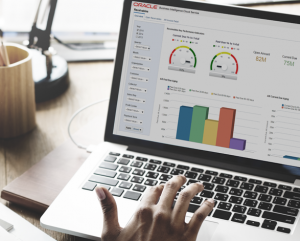Editor’s Note: This guest blog post comes courtesy of Gail Cole with Avalara.
Approximately 13 states already hold at least some marketplace facilitators or providers liable for the tax on third-party sales. By this time next year, there’s a good chance every state with a general sales tax will do the same.
After Amazon started collecting and remitting sales tax in all states, in the spring of 2017, it became clear some Amazon sales were going untaxed. The ecommerce giant didn’t tax sales by third-party or marketplace sellers unless the seller requested and paid for that service. In such cases, the seller remained responsible for remitting the tax and filing the return.
Guide to Oracle Cloud: 5 Steps to Ensure a Successful Move to the Cloud
Explore key considerations, integrating the cloud with legacy applications and challenges of current cloud implementations.
Amazon generally maintains that it isn’t liable for the tax on its marketplace sales because it isn’t the actual seller; it merely provides a platform to facilitate sales by other sellers. Many other online marketplaces take the same stance.
This is no little matter for states. Marketplace sales are experiencing tremendous growth overall; if they aren’t being taxed at the point of sale, states lose out on a growing source of sales tax revenue. And even under burgeoning state remote sales tax laws, many marketplace sales aren’t being taxed because the individual sellers are too small to trigger a sales tax collection obligation of their own.
Enter marketplace facilitator sales tax laws, which make the providers responsible for sales tax collection and remittance on third-party sales.
Marketplace facilitator sales tax laws vary by state: They affect all marketplaces in some states, while in others they only apply to marketplaces that have a certain amount of economic activity in the state. Some impose reporting requirements on the sellers themselves, while others relieve sellers of all reporting duties.
It’s worth familiarizing yourself with these laws If you sell through marketplaces, because more than 20 states have marketplace facilitator sales tax bills in the pipeline — including the four most populous, California, Florida, New York, and Texas. Learn more about proposed marketplace facilitator sales tax laws in this Avalara blog.
Perficient and Avalara drive business optimization through automating tax management for Oracle E-Business Suite customers.
